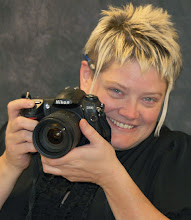

I went with Meredith on her first day of being an apprentice to Yuritza, who is training to become a nurse. She works with the health center in El Sauce as a civic requirement to earn her license. Several days a week Yuritza travels to remote communities on the outskirts of El Sauce — including one that can only be reached with a two-hour walk — and meets women with young children. She weighs newborns through kids aged 2 once a month, making sure they are not overweight or underweight. If they are, she provides medicine if needed and nutrition tips for wellness. The program is free.
In Huge Arevalo, mothers have registered 16 babies for the program
Getting off the bus, we walked a quarter mile into the bush on a path, worn from many feet walking over rocks in the stream and through the brush to the one road to El Sauce.
At Yermina's house, we greeted her and her family. It's a small home made of adobe and wood, with an open central room. There are sacks of rice in a corner and a sheet separates the bedroom beyond.
We waited here for the mothers to arrive. From this view, it looked like we were on a solitary plot of land with just the cows, pigs and chickens trotting or clucking by. The houses are spread out; I could only see one or two roofs in the distance.
Yurtiza said the women are busy in the morning doing chores, so we waited for them to wash clothes in the stream, sweep and begin to cook for the day.
Ana Francis was grinding corn, so I helped. We got to know the family as well, and I wandered out into the field to talk with Yermina's husband, Juan Luis, and Daniel, Ronald and Jose as they pushed over big triangle piles of dried wheat, cut it with machetes and sifted the crop with homemade wooden platforms.
It was nice to have time to get to know the family, and more about the program.
Yuritza sees each child until they are 2 years old, filling out a wellness card each time the mother visits.
Our first visitor was Leder Ernesto, who is none too happy to see the blue cloth sling Yuritza's community organizer, Maria Jose Reyes, wanted to put him in. His mom undressed him to his undies and they slipped him inside the sling to be weighed, him wailing.
The scale is a lightweight model from Unicef, which we hung from a tree. We simply put the baby in the sling, waited for them to settle down, and checked the number.
He was 10.6 pounds, which is about what he should be. Good news.
Yurtiza taught Meredith how to fill out the cards and how she keeps track of each child. They get a blue mark if they OK, red if they are under. Leder received a fat blue point.
The program, said our next mother, Marta Quiros, "helps a lot. It's helped me." It's hard to get to a doctor for check-ups and she was able to receive medicine when her daughter, Esterling, needed it.
As the other moms filtered in, we talked with Yermina's family about school, if we have family and kids. We also got to hold a little baby chick and be surprised that a dove lets them hold and pet it.
A while later, Juan Luis and the men and boys came in from the field.
It's was a front-row view of rural Nicaragua and an invitation into country life.
The family doesn't have much and will eat most of all they produce.
"The quality of life is high," said Meredith, despite poverty. Yermina and her family are welcoming and seem happy.


No comments:
Post a Comment